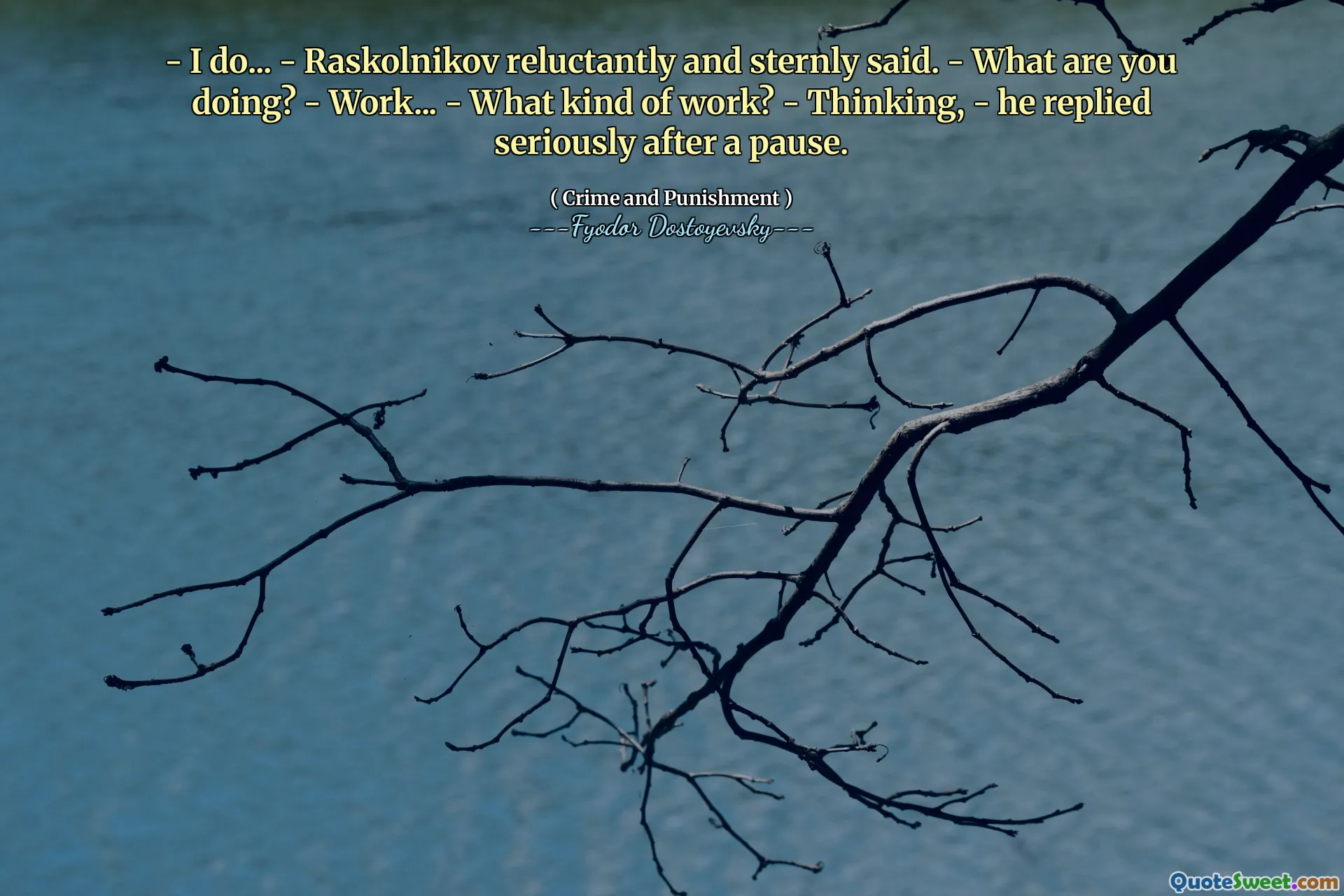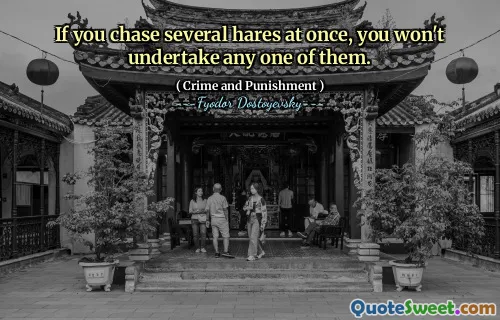
- I do... - Raskolnikov reluctantly and sternly said. - What are you doing? - Work... - What kind of work? - Thinking, - he replied seriously after a pause.
This brief exchange from Fyodor Dostoyevsky's 'Crime and Punishment' offers a profound glimpse into the inner turmoil and the contemplative nature of Raskolnikov. His hesitant tone and emphasis on 'thinking' reveal a mind deeply engaged in moral and existential questions, characteristic of his character's psychological complexity. The act of doing, for Raskolnikov, is intertwined with reflection, almost as if action without thought is meaningless to him.
The dialogue suggests a moment of introspection, where the boundaries between external work and internal cognition blur. Raskolnikov's hesitation and serious demeanor could indicate his inner struggle with the morality of his actions and the justification he seeks within himself. His focus on thinking implies that his actions are driven by moral dilemmas, philosophical inquiries, and perhaps a sense of guilt or justification.
The brevity of the exchange underscores the weight of their thoughts—what might seem a simple task takes on profound significance given the context. It’s a reminder that our internal dialogues often shape our perceptions and actions more than external circumstances. Dostoyevsky masterfully explores this interplay between thought and deed, illustrating how internal moral debates can be as impactful as physical actions.
Furthermore, this snippet highlights the importance of reflection in human decision-making. Raskolnikov’s attitude signifies that he believes to truly understand and navigate his world, he must first wrestle with his thoughts. This internal conflict is central to the novel’s exploration of guilt, redemption, and moral ambiguity, resonating deeply with the reader’s understanding of conscience and responsibility.








